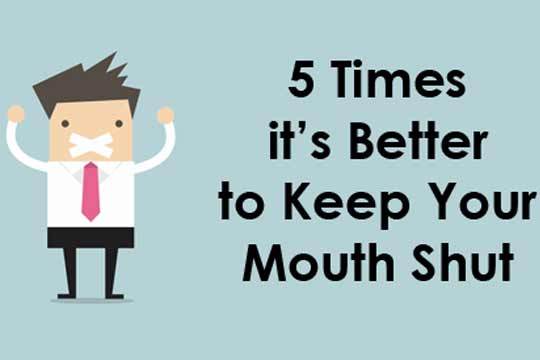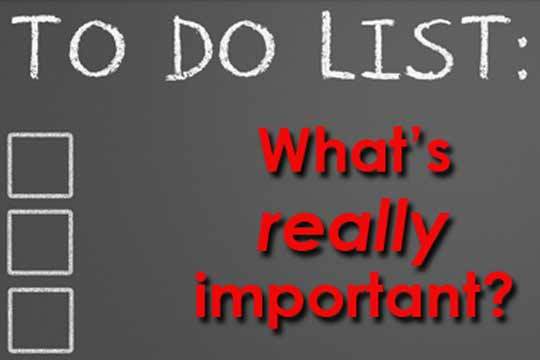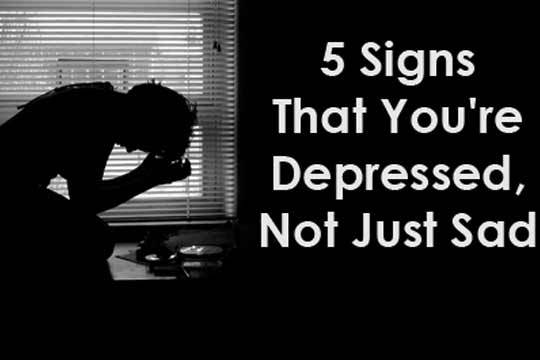Helene Lerner's Blog, page 20
June 9, 2016
5 Comebacks When You're in the Grip of a Manipulator

It really hurts when someone manipulates your words, making you seem “crazy.” Maybe they blow you off, making an assumption that what you’re saying isn’t relevant. It can be tough to come up with the perfect response to their rudeness, so take a look at these smart comebacks:
1. “Sorry, what did you say? I didn’t catch that.”
This is great to show that their words had such little impact on you that you didn’t even seem to hear them.
2. “You’re right.”
Biting back with sarcasm is a great way to get back at their comment without actually attacking them.
3. “Ouch, did you mean to be that rude?”
An honest response like this will show the person that you’re hurt, but not too hurt to let their words affect you.
4. “This conversation is over”
A response like this cuts to the chase and shows that you’re upset with how they’re treating you.
5. “Well, what do you think?”
Throw the ball back in their court by making them defend themselves by justifying why they think you’re being unreasonable.
- Barbara Bent
5 Times it’s Better to Keep Your Mouth Shut

It’s been said that it takes a long time to develop a good reputation but only seconds to destroy it. That can happen when we say the wrong thing at the wrong time. Whether it’s in person, on the phone, via email, or on social media, there are some times when it’s better to keep your thoughts to yourself.
When your boss’ mind is made up
I’m not advocating you never speak your mind or that you fail to share your experience and wisdom with your boss. I’m suggesting sometimes speaking up will do more harm than good. One of those times is when your boss has already made up her mind and she just wants you to get on board. That's the time, more often than not, you’re better off keeping your thoughts to yourself.
When your friend wants to have the last word
You know what I'm talking about. It's when your friend “knows” he or she is right and they clearly want to have the last word. Let them. Unless they are going to do irreparable harm to themselves or someone else, tell yourself, "This is the time to just keep my thoughts to myself." If you do, both of you will be happy and the friendship will stay intact.
When your emotions are running high
One thing we all have in common is we have “buttons” that others can find and push. For some people, it’s a specific topic, and for others it’s when they feel they’re being criticized. If you're feeling too hot under the collar or feeling defensive, keep quiet—at least for the time being. You can’t un-ring a bell and you can’t get the words back after they’ve left your mouth or your keyboard. And if you put it on the internet you might regret it forever--which is how long what you posted will be out there. Consider that and you just might decide it's time to keep your thoughts to yourself.
When someone hasn’t asked for your advice
Just because someone has shared a problem with you doesn’t mean they want your advice. This is particularly true with social media. If you really care about the person and want to give them advice, pick up the phone and call them--don't deal with it on Facebook. And if you call them, ask them if they want your advice before you jump in. You'll rarely go wrong keeping your advice to yourself when it's not solicited—and even then, think twice before giving it.
When it’s not positive
The moms of the world are right, “If you can’t say something nice, don’t say it.” I don’t mean that literally and I’m sure all our moms didn’t either. Be known as the person who lifts others up rather than the person who can see someone’s faults and failures. After all, if you hear me running someone down, how do you know I might not do the same to you when you’re not around? Let others do the criticizing—you be the person who knows it better to keep some things to yourself.

- Alan Allard, Creator of Enlightened Happiness
June 8, 2016
Why Men Lose Interest in the Women They Care About

Men are tricky--one minute they’re interested and the next, they might not be. This can be for a variety of reasons, but for the most part, there are certain habits you can avoid to keep them from straying off.
Confidence
While it’s important to feel supported by your man, don’t lose your own self-confidence. Feel great in your own shoes and stop body-shaming or putting yourself down. Men find confidence sexy, it’s a fact.
Too Chatty
Communication is vital in a relationship. However, some women (and even men) can get too talkative, impairing their abilities to listen to their partner and empathize. For this reason, be sure to balance out the conversation so it’s not all about you.
Accept When You’re Wrong
He may love you unconditionally, but it’s not fair if you’re always insisting that you’re right in every situation. It’s important to hear your partner out, even if you think they’re in the wrong. But if you find that you weren’t right about that statement you made, kindly accept defeat and carry on.
Unplug
It’s easy to get addicted to the computer and cell phone. Make time to be with each other face to face and put down the phone for a while. Social media can wait.
Gossip Queen
While he may be a great source to talk to when you’re upset with a friend or coworker, it’s not such a great idea to only vent to him. This shows off a negative side of yourself that constantly complains. Definitely share how you feel, but don’t put others down all the time in front of him.
Trying too Hard
Your man loves you for you. For that reason, it’s important to be your genuine self with him and not try too hard. Act like yourself in front of his friends--don’t pretend to be someone you’re not.
Talking Behind his Back
Every once in awhile you might want to gripe about his annoying habits to a friend, but try to keep this bad-mouthing at a minimum. Everyone deserves to vent about the petty stuff, but don’t be too harsh.
- Barbara Bent
Meeting Someone New: What Confident Women Never Say

The first impression is lasting, so being authentic and approachable is key. Knowing what to say when you first meet someone goes a long way, but but half the battle is knowing what NOT to say. For this reason, you should NEVER...
Body shame yourself or others. Keep your insecurities to yourself and don’t make snide comments about other people.
Complain. Negativity is a repellant, so be sure to avoid whining about work, your boss, or anything else.
Ask about how much money they make. That’s tacky and inappropriate.
Apologize for nothing. Know when to say you’re sorry, but don’t apologize for no reason.
Gripe about being tired. It may have been a long day, but don’t ramble on about being how exhausted you are. No one else cares!
Dominate the conversation. Meeting new people is an opportunity to learn about someone else. Be curious about the other person and get them to talk about themselves.
Gossip. Don’t gossip about others to a stranger. Who knows, whatever you say may get back to the person you’re blabbing about.
Bring up inappropriate topics. You want to get to know someone, not turn them off immediately.
- Barbara Bent
5 Ways Make Room for What’s Really Important

Do you often take the easy way out and focus on little things that are really not important and won’t amount to anything? Do you put the “big stuff” on the back-burner because you are not sure if you can handle it?
How not to do that, take a look.
1. Face the fear and do it anyway.
They will always be fear in tackling something new and unknown. Accept that you will have it and look at fear as part of your growth process.
2. What could you be avoiding by “playing small?”
Would you lose some “friends” out of jealousy if you starting to really go for what you want? Would some people not approve of you? (They are probably jealous because they won’t or can’t take action in the way you are now).
3. What does living “bigger” mean anyway?
Do you think that you will need to be a “superhero” type if you start taking on more and more responsibility? Even if you step out in a new way, are more visible to people and are asked to do more things, you can always say NO. (Yes, this may feel uncomfortable at first, but you’d be surprised with practice it does get easier.)
4. It’s time to put your “big girl” shoes on.
This world is in a turbulent place, and each and every one of us is being called to step out in a new way.
5. You were born to do it.
Each of us has a destiny to fulfill. If you don’t know yours, time to find out. If you do, time to take action.
5 Ways To Deal With Angry People

Dealing with an angry person is difficult for most people. That makes sense—after all, where do you go to school to learn how to respond to someone else’s anger? So what do you do with someone who is making you the target of their inappropriately- expressed anger? Here are five suggestions:
It’s not about you
Even if you’ve done something that the other person doesn’t like, they have a responsibility to communicate with you appropriately. There is never any excuse for yelling, name-calling or intimidating remarks, much less threats. If you think on any level, “This is partially my fault,” you’ll likely just enable their behavior. You know the saying, "No one can make you angry, only you?” If that's true, understand that the person who is inappropriately angry with you needs to own how they're expressing their emotions--it's on them, not you.
Deal with it now
The first time or two you’re dealing with an angry person, it’s tempting to say it won’t happen again. But angry people are smart—they know who will or won’t tolerate their outbursts or toxic comments. They know who they can intimidate and go back to again and again to vent or to blow up at. Learn to say, “I can’t talk now,” and mean it.
Give them a pass
I’m giving you an exception to the rule above. If it’s someone you want to maintain a relationship with and they’re angry about someone else or a situation not related to you — let them “vent” if they aren’t being toxic. Every great once in a while you might want to give someone a pass and hear them out (again, if they’re not attacking you). But be careful with this. Too many passes, and even the anger they express appropriately, will take a toll on you. Who wants to be around a person who gets upset over so many things?
Take a break
If your family member, friend, or co-worker is getting too heated, it’s time to take a break in the conversation. Simply say, “I want to talk more but only when we can do so in a way that works for both of us—we can try this again later.” Then just leave—don’t wait for their agreement or listen to their objections—just leave. And don’t worry about how they will feel about what you’re doing—they’re certainly not worrying about your feelings, are they? Exception: If you’re dealing with your boss, say, “Can we give this an hour or a day and come back to it so we can work together to find solutions? I know we both want to resolve this and maybe taking a break will help us do that.”
Educate yourself
A blog post can’t possibly cover all the bases and give you all you need on this topic. You can enroll in a webinar on dealing with angry people, listen to a podcast, or read a book. For starters, check out Dr. Mark Goulston’s book Talking With Crazy. What you don’t want to do is to allow angry people to be in your life and not know how to set and enforce boundaries for your own well-being. Learn how to take care of yourself—you deserve it.

- Alan Allard, Creator of Enlightened Happiness
June 7, 2016
What Your Body Language is Really Saying and What You Want it to Say

You can say a lot by saying nothing at all. The limbic system in our brains controls involuntary reactions that show how we are feeling and what we think about a situation. For example, when we are upset, our brows furrow. When we’re stressed out, we clench our jaws. When we’re happy, we smile and may let out a chuckle. This nonverbal communication is hard-wired in our lives, so it’s important that we understand how effective it may be.
Potential romantic relationships
Understanding body language is vital when considering a love interest. After all, your relationship with the person will become largely physical. Research shows that everything from eye contact to posture to tone of voice will determine how interested the partners are in each other. In fact, it has been proven that women often seem more interested than men when really they are just more sociable in general. So be sure to tune into your partner’s nonverbal cues, as well as your own, as you make steady advances.
In the workplace
Nonverbal cues play just as big of a role in the workplace as verbal ones. Just peek into the office to see how people are sitting: the boss may take a more relaxed stance with louder displays of emotion. At the same time, the secretary will most likely be the one scurrying around with their head to the ground. It’s all about confidence--to look more powerful, you must exude confidence in every gesture. The more insecure employee will wear their fear on their face.
Reading the “micro expression”
A micro expression is a quick change in facial expression (think as short as 1/125th of a second) to show when someone tries to hide their true emotional reaction. It can be useful to understand these expressions because most often they’re associated with lie detection. If you catch fear on someone’s face for a split-second, for example, you may have caught them in a lie.
- Barbara Bent
6 Foods to Boost Your Energy

For most people, feeling the familiar mid-day lag causes them to reach for the traditional pick-me-ups: coffee, sugary beverages, or even candy. While these options do provide temporary results, the energy boost tends to be short-lived, causing a crash, or worse, ingesting more sugar and caffeine.
In order to make a more healthful choice with better results, think of a pyramid. This pyramid is comprised of the macronutrients: protein, fiber, and complex carbohydrates. If you’re able to remember the “pyramid,” you’ll find yourself opting for healthy, energy-sustaining snacks throughout your day, with none of the adverse symptoms. See below for examples of these balanced foods.
1. Almonds
Almonds are great energy booster due to contained nutrients like Magnesium and Vitamin B. These nutrients turn food into energy while boosting metabolism! People with magnesium deficiencies have been shown to fatigue more quickly during exercise, while insufficient Vitamin B levels lead to irritability and inability to focus. Stay conscious of your calorie intake and stick to 1 oz. (less than 20 nuts) to prevent getting too much of a good thing!
2. Salmon
Opting for foods rich on omega 3 fatty acids like salmon provides an excellent boost in energy. The protein in this fatty fish provides satiety, which is great for those trying to lose weight. Added benefits are improved memory, reduced depression, and lowering bad cholesterol and blood pressure!
3. Bananas
Gym-goers often refer to bananas as nature’s energy bar. Chock-full of Potassium, Fiber, and Vitamin B, this fruit provides sustained energy levels and muscle function. This makes bananas an ideal pre or post-workout snack as well as an optimal mid-day snack at the office. For the perfect combination of fiber and protein, try pairing your banana with low-fat Greek yogurt. Yum!
4. Kale
Kale seems to be all the rage these days-and for good reason! This versatile super-food is dense in the amino acid L-tyrosine, providing a mental boost that prevents that familiar fogginess experienced mid-day. The anti-oxidants and fiber in Kale keep you full longer while stabilizing blood sugar levels. Use it as a base in salad, sauté it as a side dish, chop it up to add to soup, or toss with whole wheat pasta. There are so many different ways to enjoy Kale, you’re sure to find one that caters to your specific taste.
5. Oatmeal
Another popular dish among gym-goers, oatmeal is known as a staple in high-fiber, filling meal choices. The slow-digesting properties of oatmeal make it an optimal breakfast choice as it powers you throughout your morning. The sustained energy levels will keep you awake and focused, preventing you from reaching for coffee or sugary options.
6. Greek yogurt
An excellent choice for breakfast, lunch, or snack, Greek yogurt keeps your hunger at bay without weighing you down. Greek yogurt has twice the amount of protein versus regular yogurt. Mixing in berries or nuts provides for an even more substantial choice that will power you through your day.

- Christine Gomolka, Writer, Sales Professional, Teacher
Things To Remember When You’re Not Where You Want To Be

Do you find yourself asking, "are we there yet?" while you are transitioning to a bigger and better you? Then check out the basics and not so basics on what to expect when going through a period of change.
The Basics:
1. Own your journey.
Tackle it all head on. It’s usually during periods of chaos in your life that you have some of the best learning experiences. So shift your perspective and appreciate where you are right now.
2. Use your resources.
It’s normal to have days when you’re overcome with feelings of doubt and insecurity. Use your network of good friends who you can count on and talk to no matter what.
3. Take time for yourself.
Just because you’re not where you hope to be doesn’t mean you don’t deserve to pamper yourself. Working on improving your life is a full-time job. So give yourself some well-deserved R&R every once in a while. And don’t feel guilty about it!
4. Make a plan and take it one step at a time.
When you look at where you are now, where you want to be and all the things you need to do to get there, it can be overwhelming. Take a sheet of paper or a poster board and create a vision board with what you hope to achieve. Then map out the first step and go from there. Visualization is an amazing tool that has been proven to help get you motivated. And when you achieve a goal that’s en route to getting you what you want, it can be affirming.
The Not-So Basics:
1. It can feel lonely, and that’s OK.
Loneliness forces self-awareness. So embrace the isolation and open yourself up to understanding who you are, what you want and realize you have what it takes to achieve it.
2. Negative thoughts will sometimes prevail.
You’ll have days when you think you’re not good enough or you’re not doing enough and you’ll be tempted to choose an easier route. Instead of indulging the pity-party, turn this negativity around, and use it in a positive way to help you get there.
3. Embrace change.
Let’s first congratulate you on making it this far. In order to evolve you have to lean into uncertainty, which is scary and not everyone does it. But this is why self-awareness is so important. The sooner you understand that you’re strong and capable, the sooner you can get comfortable with being uncomfortable.
4. Trust yourself.
If you fall, you will get back up. So trust yourself, trust the process, and you will find yourself eventually in a good place.
- Bre Glynn
5 Signs That You're Depressed, Not Just Sad

Everyone has bad days: days when you’re down, sad, and don’t feel like doing anything. You struggle to get out of bed. You don’t smile. And you just want to be left alone to wallow in your misery.
For most people, these days are just that – bad days. The sadness is circumstantial and not an everyday occurrence. But for others, the sadness lingers, it deepens, and it may be more than just a string of bad days. It may be depression.
Clinical depression is more than just being sad. It involves lasting feelings of sadness and can become chronic. Without treatment, the effects of depression can quickly spiral out of control and can impact every aspect of your life. That’s why here at Ask Dr. Nandi, we want you to know the differences between just being sad and real depression, so you can be your own health hero and get the help you need when you need it.
Here are five ways to tell if you’re just sad or if you’re really depressed:
1. You Feel Sad Most of the Time
When you have clinical depression, you’re sad most of the time. Not just when you’re at home, not just when you’re at work, but pretty much every minute of every day. The feelings become overwhelming and begin to impact how you sleep and eat.
2. You’re Hopeless
When you’re sad, it’s about something specific. You bungled a project at work. Your mother died. Or you’re going through a divorce. But when you’re depressed, everything is awful, and you become hopeless. You think that no matter what happens, things are never going to change, and you’ll always feel this low.
3. You Don’t Enjoy What You Used to
When you’re sad, you still enjoy reading books, spending time with people, and walks on the beach. When you’re depressed, nothing makes it better, even the things that used to bring you joy. When old hobbies and activities no longer bring you out of your funk, chances are it’s more than just being sad.
4. Your Relationships Are Negatively Affected
Depression causes people to withdraw from those closest to them, including family and friends. These relationships become neglected, and even when those you love reach out to offer support, you push them away.
5. You’re Suicidal
When you’re depressed, the overwhelming feelings of hopelessness, worthlessness, and guilt can become too much, and you may start thinking about hurting yourself or committing suicide. If you’re becoming preoccupied with death or think the world would be better off without you, it’s time to seek professional help.
Depression is different than sadness. It’s a chronic, debilitating mental health disorder that makes you have abnormally sad thoughts. But there is help. If you or someone you love is suffering from depression, be a health hero and get help before it’s too late.
Partha’s Rx
* Changes in appetite are a common sign of depression.
* Changes in sleep patterns, and wanting to sleep even after eight hours of shut eye, are also typical characteristics of depression.
* Depression causes a mental fog that makes it harder for people to concentrate or remember things.
* Depression also causes severe irritability, restlessness, and unease.
* Don’t underestimate suicidal comments and seek help if someone you love is making them.

Partha Nandi M.D., F.A.C.P is the creator and host of the internationally syndicated medical lifestyle television show, Ask Dr. Nandi. Dr. Nandi delivers passionate and inspiring talks to empower the world in his mission, “To Be Your Own Health Hero.”
Helene Lerner's Blog
- Helene Lerner's profile
- 9 followers



